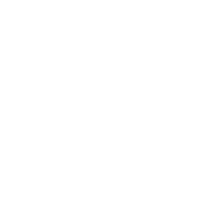Gender Education Training for the New Millennium (2001)

Source: Ashe, Penni, Cole, Sandra, Denny, Dallas, Green, Jamison, Smith, Gwendolyn, & Xavier, Jessica. (2001, 24 March). How to do effective gender education. Workshop presented at Transgender 2001, 15th Annual Convention, Chicago, IL, 22-25 March, 2001.
GEA is the successor to AEGIS, the nonprofit American Educational Gender Information Service.
GENDER EDUCATION AND ADVOCACY WORKSHOP
IFGE ANNUAL CONVENTION, CHICAGO, IL
March 21-26, 2001
Gender Education Training for the New Millennium
Jamison Green, Dallas Denny, Jessica Xavier, Sandra Cole, Gwen Smith
ABSTRACT
Education has always been a key component of progressive social change benefiting minorities. Over the past thirty years, a sustained, diversified series of aggressive issue-specific public education campaigns have been instrumental in achieving gains in civil rights protections, as well as contributing to general public’s growing acceptance of gay, lesbian and bisexual people. Groups like PFLAG, GLAAD, GLSEN, NYAC, COLAGE and GLMA have contributed significantly to these efforts, and many of them have been or become inclusive of gender variant people in their efforts.
Yet transgendered people have yet to meet the challenge of widespread public gender education, which must necessarily accompany a political movement, to foster the latter’s eventual success. Where they live openly, transgender people continue to suffer from massive stigmatization and social marginalization, which facilitates widespread discrimination and violence. The transpolitical movement has documented many cases of discrimination in the forms of denial of educational employment and housing opportunities; familial rights; and health care. As a movement, the time has come for us to prioritize our public gender education efforts in order to remove this stigmatization and restore our basic human dignity.
Gender Education and Advocacy (GEA) is a new national non-profit organization with twin missions of education and nonpolitical advocacy in the areas of health and media. By focusing on these areas, GEA seeks to improve the lives of all gender variant people, regardless of their sexual orientation or individual identities. Our educational approach is called Distributed Gender Education, with a goal of empowering local transgender organizations and individuals to take on the roles of educating their local communities. This workshop will be the first in a planned series at various transgender conferences around the country in the coming years.
GEA’s board will present an overview and analysis of gender education efforts to date; our core educational philosophy based upon current understandings of gender variance, including our Gender Variance model; Distributed Gender Education and how it works; how to develop a local plan for gender education, how to conduct gender education presentations; and how to deal with specific audiences, such as medical and mental health care providers; social service delivery staff, law enforcement and emergency medical services; media professionals; and peer education, including Transgender Care and HIV/STD education and prevention. Newly developed gender educational materials will be made available for those attending.
The goal of the workshop is to empower and recruit those interested in becoming educational advocates for their local gender variant communities.
